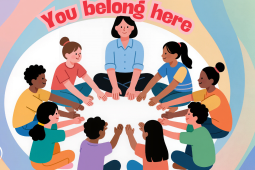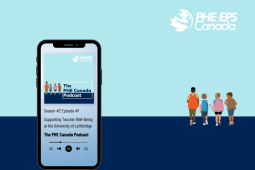Family Engagement in School

It takes a village
It doesn’t take a research study to tell us that children are most likely to experience success in school when surrounded by a circle of care. Parents have told us that magic happens when teachers and families come together to form a unified support-team to bolster student success.
This is easier said than done
There are wonderful benefits to family-teacher teamwork including more creative problem solving, improved conflict resolution, and more efficient and effective mental health support (Reinke et al., 2011; Orchard, Curran & Kabene, 2005; Whichard-Bond, 2013). But families and teachers sometimes have differing views of how best to support a student. This may be especially true for families with youngsters who struggle with behaviours and emotions.
Robyn Masters, PhD Candidate at Western University spoke to parents from Parents for Children’s Mental Health to find out more about their experiences. Parents had a lot to say!
So what are some of the barriers to family-teacher teamwork?
Families shared some of the challenges of raising a school-aged child with mental health concerns.
“There’s so many conflicting hurdles that, from a school level to a parent it’s almost immediately adversarial…because the child doesn’t fit the system and the system is not designed for the child.”
1. Home stress
I think when you’re parenting a child with mental illness, in particular, there are so many failures that school failures just add to. And they’re in school every day all day. It can be so hard to just cope with it on an ongoing basis all the time…it just builds up over time.”
2. Enormity of teachers’ roles
“[Teachers are] overloaded. The number of diagnoses that are coming out now that are so varied and far between in terms of what those children need. The difference between what my girls need as opposed to what an autistic child needs as opposed to, you know, a child with fetal alcohol syndrome needs. It’s just mind boggling.”
3. Uncertainty of available resources
“I think the most difficult piece was trying to figure out what was in the system. Like trying to understand because the help you would have thought was there at the time wasn’t necessarily there”
4. New teacher every year
Every September it’s the same thing right? You’re hoping that the teacher they get in September is going to be somebody who is going to value all of the information and the wisdom that you’re going to share with them about your child. But there’s always that little piece of you that thinks, “Oh God, I hope they get it.” Because if they don’t get it, one or two things could damage all the great work that we’ve done up until now. It’s as though you are reinventing the wheel every September.
How to strengthen family-teacher partnerships
1. Take time to build trust.
“In June they called us in for a meeting… and within seconds of meeting everyone the principal had my daughter’s file on her desk and she closed up her file and said, ‘We’ve all seen her file, we all know what she’s like in black and white. Now let us know what we need to do to help her ease that transition and get her in here feeling comfortable.’…Then she asked, ‘What does [your child] need?’ Nobody had at that point ever asked, ‘What does she need?’ It was just an amazing experience.”
2. Brainstorm at the table.
“If you can get educators and families in the same room to have conversations about how to help kids, I think that we will see great successes. And kids feel that too, right? ... we need to keep having these conversations and continue to open that door … More ways that we can come together to brainstorm ideas, or thoughts, or processes… I think we would be making lots of headway for sure!”
3. Listen openly.
“I think when we do that we open up that energy, that ability to really listen to each other and really hear each other—I think, sometimes we hear but we’re not really listening. When we listen, we open up such a world of possibilities and creatively think outside the box. Right?”
4. Get creative together!
“There are creative things we can do in our schools to allow children to deal with these issues in a positive way and I think a lot of times we get hung up on, ‘How are we going to pay for that. Who’s going to do that?’ It doesn’t have to be that complicated…I see a lot of kids who are struggling, but are not at a crisis point, who could really benefit from some creative thinking.”
What can I do today?
Three quick tips from parents who have children living with mental health challenges.
1. Ask about the good.
“Listen to all the things that parents/guardians say about their children, but also encourage them to tell you what their strengths are. Encourage parents to tell you all the things that they love about their child, because you may discover things that you never see in a classroom”
2. Send positive notes home.
“I think sometimes we’re so focused on what’s not working we need to be focused on what is working as well. Those little notes home to say ‘this happened’ or quick emails to say, ‘This happened and it was really good’… because I think sometimes as parents we really feel like we’re not—I know I have—I feel like I’m not quite cutting it.”
3. Empathy empathy empathy
“Judging is the worst thing you can do. Being understanding and compassionate and empathetic, those are the big things…if you see a child that does have needs that are outside the norm, approach the family and decide on a collaborative way of dealing with the needs outside of the classroom so in the end the child has a successful day in school.”
For more tips check out What’s Up With Talking to Families? Tip Sheet
Want to learn more from the experts? Visit Parents for Children’s Mental Health, an organization of experts that builds capacity in families and communities that raise children and youth with mental health disorders.
Robyn Masters, PhD candidate.
School and Child Psychology, Faculty of Education,
Western University








